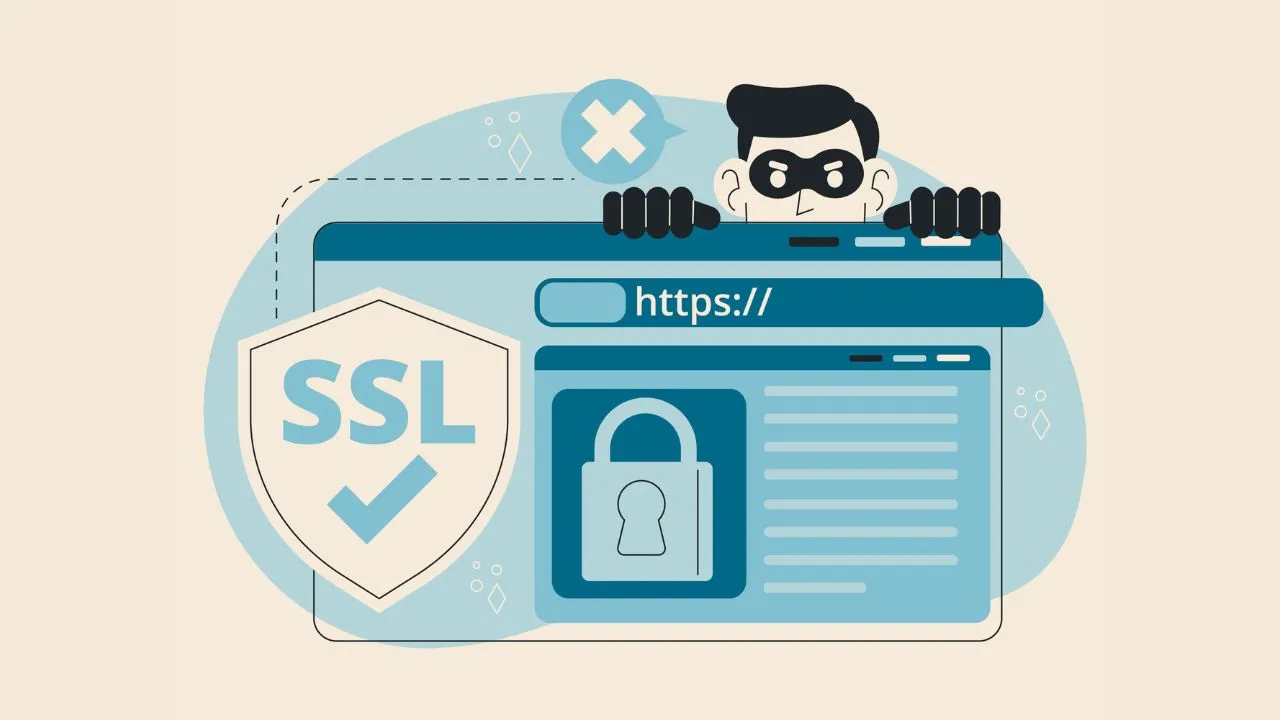
Table of Contents
In the digital world, ensuring the security and privacy of online transactions and communications is paramount. Secure Sockets Layer (SSL) technology plays a crucial role in protecting sensitive data transmitted over the internet. In this article, we explore what SSL is, how it works, and why it is essential for your website.
What is SSL?
1. Definition:
- Secure Sockets Layer (SSL) is a standard security protocol for establishing encrypted links between a web server and a browser in online communications. SSL ensures that all data transmitted between the web server and browser remains encrypted and secure.
2. Key Characteristics:
- Encryption: SSL encrypts data, ensuring that sensitive information such as credit card numbers, login credentials, and personal details cannot be intercepted and read by unauthorized parties.
- Authentication: SSL provides authentication, ensuring that users are communicating with the intended server and not an imposter.
How Does SSL Work?
1. SSL Handshake Process:
- The SSL handshake is a process that establishes the secure connection between a client and server. Here’s a step-by-step breakdown:
2. Browser to Server Connection:
- When a user connects to a website with SSL, the browser requests the server to identify itself.
3. Server Sends a Copy of SSL Certificate:
- The server responds by sending a copy of its SSL certificate, including the server’s public key.
4. Browser Validates Certificate:
- The browser checks the certificate against a list of trusted Certificate Authorities (CAs). If the certificate is trusted, the browser creates, encrypts, and sends back a session key using the server’s public key.
5. Server Decrypts Session Key:
- The server decrypts the session key using its private key and sends back an acknowledgment encrypted with the session key to start the encrypted session.
6. Encrypted Data Transmission:
- From this point, all data transmitted between the browser and server is encrypted using the session key.
Why Use SSL?
1. Data Security:
- SSL encryption ensures that sensitive data exchanged between users and websites is secure, protecting against data breaches and cyber-attacks.
2. Trust and Credibility:
- Websites with SSL certificates display a padlock icon in the browser’s address bar, signaling to users that the site is secure. This builds trust and credibility with visitors.
3. SEO Benefits:
- Search engines like Google favor websites with SSL certificates, potentially boosting your website’s search engine rankings.
4. Compliance Requirements:
- Many regulatory frameworks and industry standards require the use of SSL encryption to protect sensitive information, making it a compliance necessity.
Types of SSL Certificates
1. Domain Validated (DV) Certificates:
- These certificates offer basic encryption and are typically issued within minutes. They verify domain ownership but provide minimal identity validation.
2. Organization Validated (OV) Certificates:
- OV certificates provide higher levels of security by validating the organization’s identity in addition to domain ownership.
3. Extended Validation (EV) Certificates:
- EV certificates offer the highest level of security and trust by performing a thorough vetting process. They display the organization’s name in the browser’s address bar, providing a visual assurance of legitimacy.
How to Implement SSL
1. Purchase an SSL Certificate:
- Choose an SSL certificate that meets your website’s needs from a trusted Certificate Authority (CA).
2. Install the SSL Certificate:
- Follow the CA’s instructions to install the SSL certificate on your web server. This typically involves generating a Certificate Signing Request (CSR) and configuring your server to use SSL.
3. Update Website Links:
- Update your website’s links and resources to use HTTPS instead of HTTP to ensure all content is loaded securely.
4. Test and Monitor:
- Use SSL testing tools to verify that your SSL certificate is correctly installed and configured. Regularly monitor your website’s SSL status to ensure continued security.
Conclusion
Secure Sockets Layer (SSL) is a fundamental technology for securing online communications and protecting sensitive data. By encrypting data and providing authentication, SSL builds trust with users and enhances the overall security of your website. Implementing SSL is essential for safeguarding your online presence and ensuring compliance with industry standards.
Secure Your Website with Our SSL Solutions!
Ensure your website’s security and build trust with visitors by implementing SSL. Softhat IT Solutions offers comprehensive SSL solutions tailored to your needs. Contact us today to learn how we can help you secure your website with SSL.
